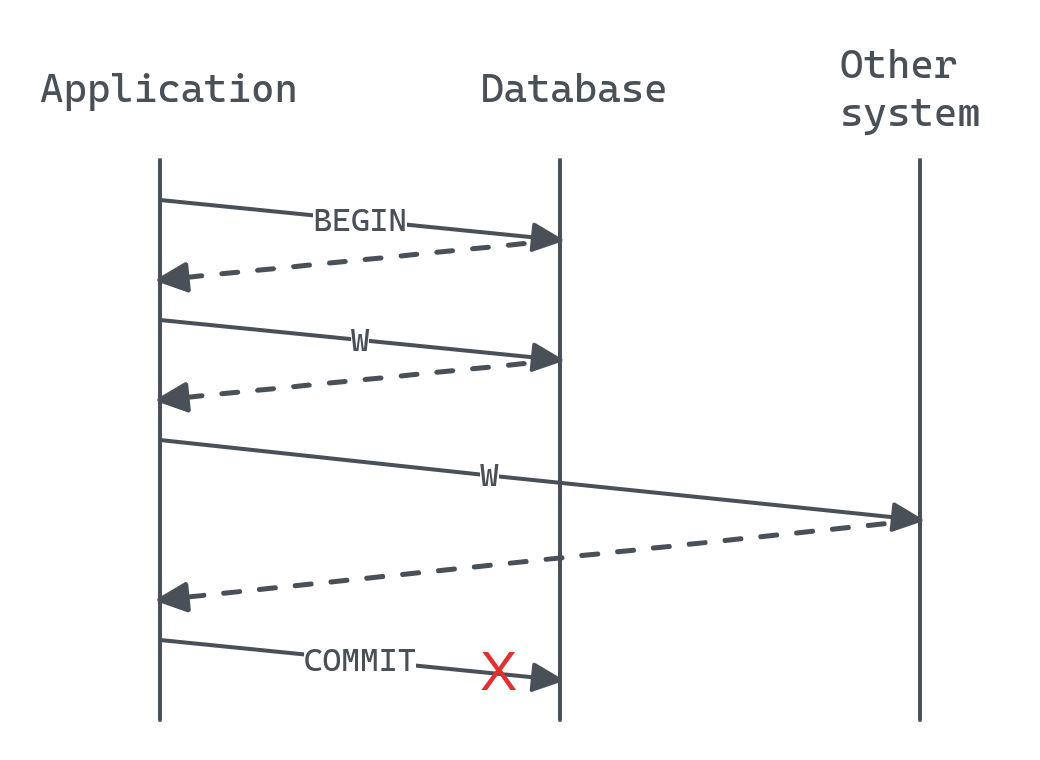Problem
How do we write to a database and another system atomically?
Non-solution
The following is not a solution to the problem:
- Begin a transaction
- Write a record to the database
- Perform a write operation on another system (e.g. an HTTP POST request)
- Commit the transaction

An error occurring after writing to an external system.
It can be tempting to think of the two writes being atomic, but this is not the case. For example, if the system crashes between steps 3 and 4 (or the transaction times out, or…) then the HTTP request will succeed, but the write to the database will be rolled back.
In fact, in terms of consistency, it is no different to the following:
- Perform a write operation on another system (e.g. an HTTP POST request)
- Write a record to the database
Both scenarios can result in the HTTP request succeeding but the write to the database failing. The second scenario is arguably better for two reasons:
- It is clearly not atomic, and does not pretend to be so.
- It has higher database connection utilisation. The first scenario is holding a database connection in step 3 without using it. The longer the request takes, the lower the connection utilisation. Database connections can be scarce resources, and letting them sit idle while doing other I/O can result in worse throughput and latency.
This technique can also make deadlocks more likely. Consider the following scenario:
- Begin a transaction
- Write to table A (acquires a lock)
- Perform a write operation on another system (e.g. an HTTP POST request)
- Write to table B (acquires another lock)
- Commit the transaction
The longer step 3 takes, the more likely it is that another operation could attempt to acquire conflicting locks in the opposite order (B then A).